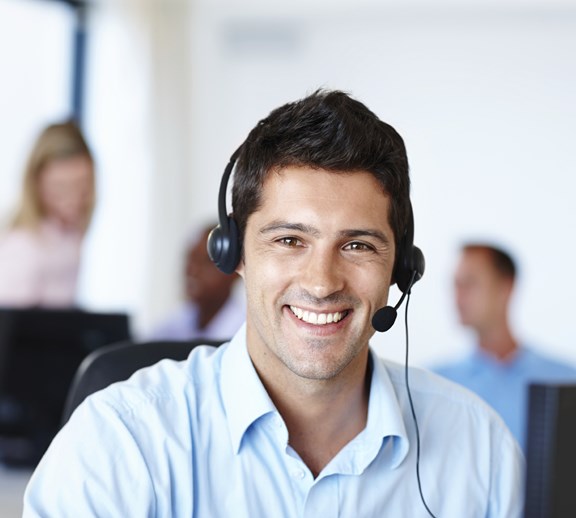Cash vs. Non-Cash Rewards – What’s the Best Bet to Win Over Channel Partners
Aug 30, 2024
It’s an all-too-familiar story – cash or non-cash – which rewards truly help win channel partners’ loyalty? In the quest to understand the factors that build strong channel partnerships, BI WORLDWIDE, in association with KANTAR conducted a groundbreaking research to understand which rewards act as the strongest drivers of engagement. We spoke to 700+ distributors, retailers, and influencers and got fascinating insights into what rewards really mean to channel partners.
Scroll Down
The ‘right’ rewards keep channel partners focused, directed, and willing to repeat positive behaviours. In terms of behavioural economics, rewards have a dopamine effect on the brain. But what does a channel partner consider and value as a reward? Is it cash, trips to popular destinations, concert tickets, luxurious merchandise, utility items, or something else? Rewards are strong and powerful drivers that can build a highly motivated and engaged set of channel partners. Understanding the nuances of this deeply layered and sophisticated driver is imperative for successful and profitable channel partnerships.
“Money, as it turns out, is very often the most expensive way to motivate people.” – Dan Ariely
Say-Do Gap or Preference Reversal
Often, there is a say-do gap between what people say they would like to do versus their actual actions. Our study shows that when asked, most partners say cash will change their behaviour, but when it comes to actually exhibiting the behaviour, more partners are motivated by a non-cash reward. Hence, in actuality, cash is not the king! Travel, luxury and business infrastructure rewards drive extreme satisfaction over cash-based rewards.

What Partners Want from Brands – Future Preference vs. Satisfaction
During the course of the study, we asked the channel partners what they would like to receive as rewards in the future. Plotting the data on the satisfaction scale established that Travel and Luxury rewards sit right at the top over cash, driving extreme satisfaction on both the preference and satisfaction scales. And while the partners say that they prefer cash, cash-based rewards lag behind when it comes to driving satisfaction.
Overall preference and satisfaction scales show that a mix of transactional (cash or cash-based), functional (utility or business infrastructure), and aspirational (travel or luxury) rewards drive rewards efficacy.

Cash Is Spent on Necessities, Not Hedonically
Hedonic rewards drive pleasurable, inspiring, and positive experiences, and hence have a huge impact. This is where cash rewards fall short. When we asked channel partners how they spend their cash rewards, we found out that cash is absorbed by necessities, as a large number of partners feel guilty for spending money on their pleasures and aspirations.
Mostly mid-size partners such as dealers, big retailers, or distributors spend cash on business improvement, while daily wagers are especially likely to spend cash on utility items or save it in banks, resulting in no differentiation and an easy switch.

Cash Doesn’t Talk, Only Whispers
Behavioural economics contends that socialisation of rewards can be important to drive positive brand experiences. It was observed that channel partners do not share information about cash rewards with many people and feel uncomfortable bragging about receiving cash. Cash has no trophy value; once spent, it’s gone.

It has also been observed that when people are offered hedonic rewards — something they can show or talk about among their friends and family members while reiterating their success story — their chances to take instant measures increase manifold. Lastly, the principle of sociability too shows immense results, as it enables channel partners to share their rewards experience with friends or family or on social media, cultivating a greater brand affinity and connection.
The New Reward King: Brands, Invest in Aspirations
More than anything, brands need to think about the feelings they are trying to evoke through their rewards. We asked channel partners about their reactions to getting various types of rewards and the feelings these rewards evoke.

We discovered that, while cash may provide short bursts of motivation triggers, aspirational rewards are a brand's best investment for long-term brand engagement and loyalty. Travel, luxury, business infrastructure, and utility rewards motivate and also evoke a sense of emotional gratification, accomplishment, and social credibility, which cannot be achieved through cash rewards.
Aspirational rewards are the best investment for brands in the long-term, especially for brand engagement, loyalty, incremental business, and greater brand advocacy.
Yet, there lie many challenges for brands in India to pave the path to this strategic mix of utilitarian and experiential rewards. Sukesh Jain, CEO, BI WORLDWIDE, highlights, “A strong pain point facing brands today is one-size-fits all and short-term recognition programs. Essentially, this doesn’t bring channel partners an opportunity to invest in and prefer a certain brand in the long run. Brands rely on cash, credit notes, discounts, and other monetary rewards, failing to realise that competition can win over their channel partners with slightly higher monetary benefits. Unfortunately, experiences constitute only 10% of the total rewards ecosystem in India, even though they are a powerful channel partner engagement driver globally.”
Download Whitepaper
The best way to get started is to get in touch.

















